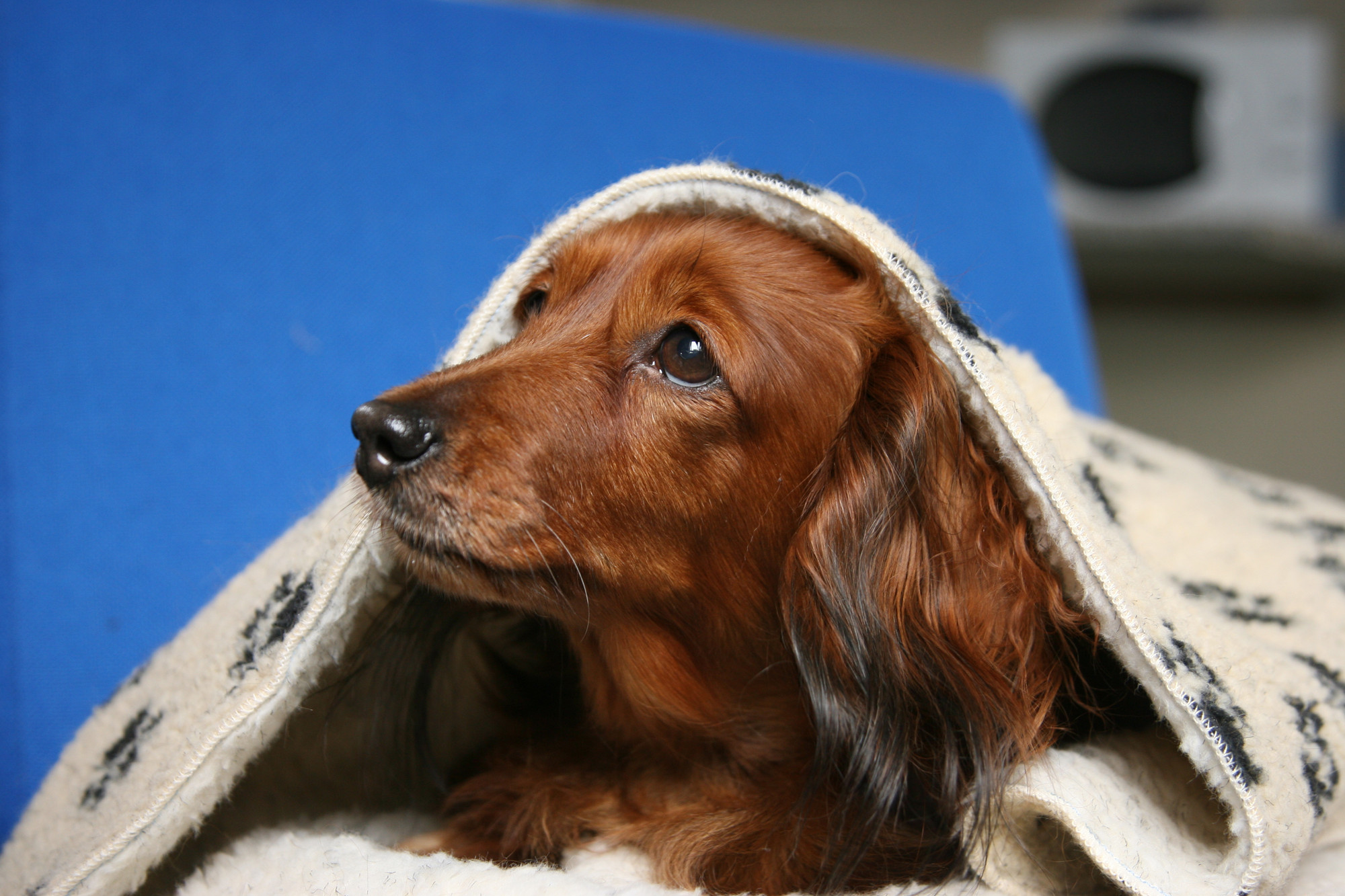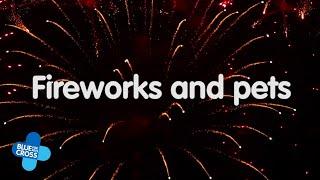
Fireworks and pets
Every year thousands of pets will suffer as a result of fireworks being let off.
Animals have very acute hearing. Loud bangs and whistles may cause them actual pain in their ears. But by following these simple guidelines your pet need not suffer.
Small pets and fireworks
Rabbits, guinea pigs, hamsters, gerbils, mice, ferrets and birds all need to be treated with special care when fireworks are being let off. These animals are easily frightened.
If you own a small pet you should follow these precautions:
- Hutches, cages and enclosures should, if possible, be brought into a quiet room indoors, or into a garage or shed.
- Give your pet extra bedding to burrow into so they feel safe.
- If you cannot bring your pet’s hutch inside, you should turn their enclosure around so that it faces a wall or fence instead of the open garden.
- Cover any aviaries or hutches with thick blankets or a duvet to block out the sight of the fireworks and deaden the sound of the bangs, but make sure there is enough ventilation.
More information on rabbits and fireworks.
Dogs, cats and fireworks
- Always keep dogs and cats inside when fireworks are being let off.
- Make sure your dog is walked earlier in the day before the fireworks start.
- Close all windows and doors, and block off cat flaps to stop pets escaping and to keep noise to a minimum. Draw the curtains and, if the animals are used to the sounds of TV or radio, switch them on and increase the volume a bit (but not too loudly) in order to block out some of the noise of the fireworks.
- Ensure dogs are wearing some form of easily readable identification (ID) – even in the house. They should have at least a collar and tag.
- Make sure that your pets are fitted with a microchip and that your contact details are up to date, so that if they do run away they have a better chance of being quickly reunited with you.
- Prepare a ‘den’ for your pet where they can feel safe and comfortable – perhaps under a bed with some of your old clothes. They may like to hide there when the fireworks start.
- Let your pet pace around, whine, miaow and hide in a corner if they want to. Do not try to coax them out – they're just trying to find safety, and should not be disturbed.
- Stay calm and act normally. This might be hard to do if you are worried about your pet, but it will help your pet if they see that you are not concerned. It’s OK to cuddle and stroke your pet if it helps them relax, but if they prefer to hide under your bed, then let them do this instead.
- Avoid leaving your pet alone during such potentially upsetting events. If you do have to leave the house, don’t get angry with your pet if you find they have been destructive or toileted after being left on their own. Shouting at a frightened pet will only make them more stressed.
- Don’t tie your dog up outside while fireworks are being let off, eg outside a shop while you pop inside, or leave them in the garden or in your car.
- Never take your dog to a fireworks display. Even if they do not bark or whimper at the noise, it does not mean they are happy. Excessive panting and yawning can indicate that your dog is stressed.
More information on dogs and fireworks and cats and fireworks.
Horses, ponies and fireworks
- Fireworks must not be set off near livestock or horses in fields, or close to buildings housing livestock. Anyone planning a firework display in a rural area should warn neighbouring farmers and stables in advance.
- Try to make sure that fireworks are never set off near your horse’s field or stable. Tell neighbours and local fireworks display organisers there are horses nearby, so that they can ensure fireworks are set off in the opposite direction and well away from them.
- Keep your horse in a familiar environment, in their normal routine with any companions to make them feel secure. If your horse is usually stabled then keep them stabled. If they are normally out in the field, keep them there as long as the area is safe, secure and not near the fireworks display area.
- Consider bringing your horses into a stable over bonfire night – but do this in advance so they are used to their surroundings (ie not for the first time on the night there is a local display).
- In the stable, remove any hay nets and buckets the horse could get tangled up in if spooked. Make sure they have a deep bed to stop them slipping if startled.
- Ensure that you or someone experienced stays with your horse if you know fireworks are being set off. This way you can observe their behaviour, ensure they remain as safe and calm as possible and respond to their reactions appropriately.
- Make sure there's nothing lying around in the field that the horse could injure themselves on if they ran into them (eg buckets, jumps or low hanging branches). Also, remove any temporary electric fencing around firework season so that they don't get hurt.
- If you know your horse reacts badly to loud noises speak to your vet or perhaps consider moving your horse for the night.
- Try to remain calm and positive as horses can sense unease in a person and this might make things worse if your horse is startled.
- Be careful yourself. Try not to get in the way if your horse becomes startled as you may get hurt.
- Don’t take the risk of riding when you think fireworks might be set off.
- If you need to leave your horse in the care of another person during a fireworks show, leave clear instructions and contact details for yourself and your vet should any problems arise.
More information on horses and fireworks.
The laws concerning fireworks
- It is illegal for anyone under 18 to possess a firework in a public place.
- Fireworks cannot be set off by a private individual between 11.00pm and 7.00am except for certain nights of the year.
- It's an offence to cause any unnecessary suffering to any captive or domestic animal.
- Unless retailers possess a special licence they may only sell fireworks from 15 October to 10 November, three days before Diwali and Chinese New Year and 26 to 31 December.
While this information is correct at the time of publication all pet owners are advised to check www.gov.uk/fireworks-the-law for current guidelines.
Seeking help for your pet
If your dog or cat shows signs of stress or distress during fireworks, we recommend that you seek veterinary help six to 12 weeks before the firework season begins.
If you want to help prepare your dog for the future, contact an accredited behaviourist through the Animal Behaviour and Training Council or our Behaviour and Training Service. Behaviour plans should be started at least three to six months in advance of fireworks night.
Unfortunately we are often not forewarned about private fireworks displays. Be prepared for 5 November and New Year’s Eve, and be proactive about finding out when other celebratory occasions might take place.
Page details
Reviewed
• 7 November 2022
Next review
• 6 November 2025







